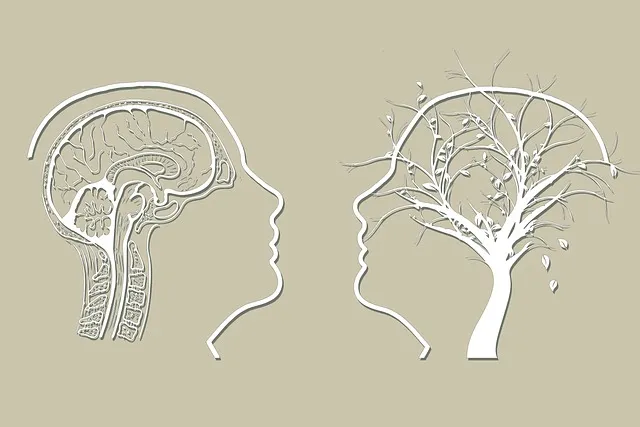Media portrayal significantly shapes public perceptions about mental health, either positively through accurate, compassionate stories or negatively by perpetuating stereotypes. Kaiser Permanente's multiple mental health locations in Westminster aim to address this need for positive representation. They offer comprehensive services and advocate for nuanced storytelling to destigmatize mental illness. By enhancing media content quality, encouraging diverse narratives, integrating support resources, and engaging communities, these locations strive to reduce stigma, empower individuals to seek help, and foster a culture of understanding and care around mental health.
“The media’s portrayal of mental illness can significantly shape public perception, influencing attitudes and access to care. In this article, we explore the impact of media representation and its challenge in fostering understanding. We focus on Kaiser Permanente’s approach at its mental health locations in Westminster, highlighting current strategies and the challenges of stereotypes. By examining these aspects, we propose actionable steps towards enhancing media accuracy and encouraging support for individuals facing mental health struggles, ultimately improving community engagement with local resources like Kaiser Permanente.”
- Understanding the Impact of Media Portrayal on Mental Health Perception
- The Current State: How Kaiser Permanente Addresses Mental Illness in Westminster
- Challenges Faced: Stereotypes and Misconceptions in Media Depictions
- Strategies for Positive Change: Enhancing Representation and Access to Care
- Community Engagement: Collaborating for a More Accurate and Supportive Media Landscape
Understanding the Impact of Media Portrayal on Mental Health Perception

The media plays a significant role in shaping public perceptions about mental health and illness. Accurate and compassionate representations can reduce the stigma associated with mental illness, fostering understanding and empathy among the general public. Conversely, negative or stereotyped portrayals can perpetuate misconceptions and increase social isolation for individuals living with these conditions. This is particularly relevant for communities like those served by Kaiser Permanente mental health locations in Westminster, where accurate representation can ensure individuals feel seen, heard, and supported.
Understanding the impact of media portrayal is crucial in developing effective Mental Illness Stigma Reduction Efforts. By promoting positive narratives that reflect the diversity of experiences, we can encourage better access to mental health services. Moreover, integrating Stress Reduction Methods into these representations can help normalize healthy coping mechanisms. Additionally, for mental health professionals involved in Risk Management Planning, being mindful of media influence is essential to navigate public expectations and ensure patient safety and well-being.
The Current State: How Kaiser Permanente Addresses Mental Illness in Westminster

In Westminster, Kaiser Permanente recognizes the critical need for accurate and compassionate representation of mental illness in media. The organization operates several mental health locations throughout the city, dedicated to providing comprehensive care to a diverse range of patients. These facilities offer a wide array of services, from counseling and therapy sessions to specialized programs tailored for specific mental health conditions.
Kaiser Permanente’s approach to addressing mental illness emphasizes holistic treatment plans that include Mood Management techniques, Stress Reduction Methods, and Confidence Boosting strategies. Their team of highly skilled professionals is committed to destigmatizing mental health concerns and ensuring that all individuals in Westminster have access to the support they need. Through education, awareness campaigns, and accessible resources, Kaiser Permanente strives to foster a community where everyone feels empowered to prioritize their mental well-being.
Challenges Faced: Stereotypes and Misconceptions in Media Depictions

Media representations play a pivotal role in shaping public perceptions about mental illness. Despite significant strides in mental health awareness, several challenges persist, primarily stemming from stereotypes and misconceptions perpetuated through various forms of media. Often, characters with mental health struggles are depicted as either dangerously unpredictable or pitifully weak, reinforcing outdated narratives that fail to reflect the diverse realities of mental illness.
These portrayals can have detrimental effects, fostering stigmatization and hindering understanding. For instance, focusing solely on extreme cases or exaggerating symptoms contributes to the false notion that mental illness is rare or inherently shameful. To counteract these trends, Kaiser Permanente mental health locations in Westminster advocate for more nuanced storytelling. By integrating Empathy Building Strategies and Mental Health Education Programs Design, media can foster a deeper understanding of these conditions, promoting Anxiety Relief through increased empathy and accurate representation.
Strategies for Positive Change: Enhancing Representation and Access to Care

To bring about positive change in mental illness representation, it’s crucial to focus on enhancing both the quality and accessibility of media content. One effective strategy is to encourage diverse storytelling that accurately portrays the experiences of individuals living with various mental health conditions. This includes showcasing recovery journeys, promoting understanding, and reducing stigmatization. By featuring characters with authentic struggles and triumphs, media platforms can foster empathy and encourage conversations about mental wellness.
Additionally, integrating resources like Kaiser Permanente mental health locations in Westminster and offering guidance on practices such as Mental Wellness Journaling Exercise and Trauma Support Services can significantly impact care accessibility. Media outlets have the power to direct audiences towards available resources and support systems, ensuring that viewers seeking help know where to turn. Encouraging emotional regulation techniques through media platforms can also empower individuals to take charge of their mental health and seek appropriate care.
Community Engagement: Collaborating for a More Accurate and Supportive Media Landscape

Community engagement is a powerful tool to challenge stereotypes and promote positive representation of mental illness in media. By fostering partnerships between healthcare providers, such as Kaiser Permanente mental health locations in Westminster, and community organizations, we can create a more accurate and supportive narrative. This collaboration ensures that stories shared reflect reality, offering a nuanced view of the diverse experiences of those living with mental health conditions.
Involving community members, especially individuals with lived experience, in the media creation process brings authenticity to storytelling. It empowers people to share their unique journeys, promoting understanding and empathy. Through this collective effort, we can integrate practices like Mindfulness Meditation and Positive Thinking, underpinned by the principles of Mind Over Matter, into the mainstream consciousness, fostering a culture of support and care for mental health.
Media representation of mental illness plays a pivotal role in shaping public perception. By challenging stereotypes and misconceptions, we can foster understanding and support for individuals facing mental health struggles. Kaiser Permanente’s efforts in Westminster, as highlighted by their initiatives to improve media portrayal, serve as a model for positive change. Through community engagement and collaborative strategies, it is possible to create an accurate and supportive media landscape that encourages access to care. By continuing these conversations and implementing inclusive practices, we can ultimately revolutionize the way mental illness is represented and perceived in our society.






